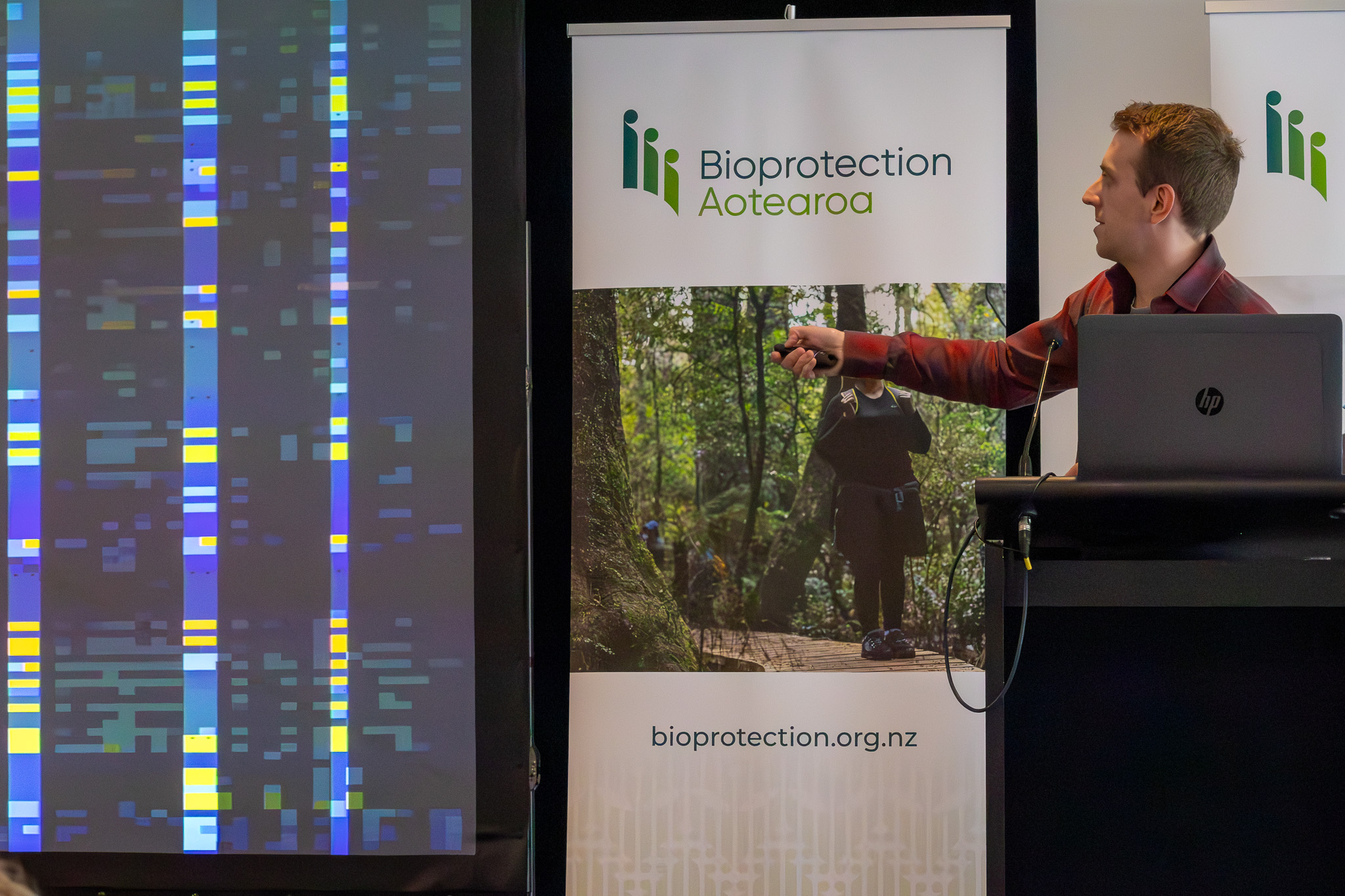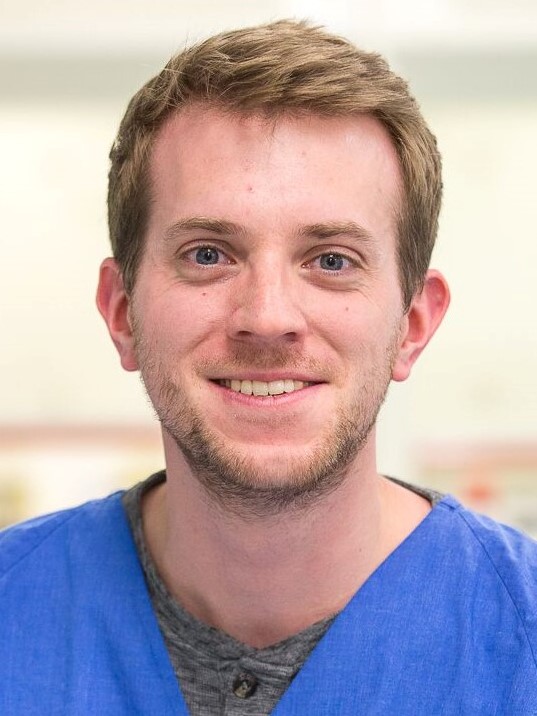6 August 2024

Postdoctoral fellow Dr Nils Birkholz (University of Otago) presenting his work on bacteria-fighting viruses.
A team of New Zealand scientists has published research in the renowned international journal, Nature, after collaborating far and wide to tell the story of a microscopic arms race.
First author, Postdoctoral fellow Dr Nils Birkholz (University of Otago) studies bacteria-fighting viruses called phages, which are being widely considered as the next step to controlling antibiotic-resistant bacteria in food production and human health.
This new research paper focuses on the expression of genes that occur when a phage infects a bacterium.
Nils says “Helix-turn-helix domain proteins were already well-known to be involved in gene regulation, but we found that one particular member of this protein family has a very interesting new mode of regulating gene expression.”
The paper describes how these proteins help the phage keep bacterial defences in check through multiple layers of regulation.
There are many other proteins in the helix-turn-helix family that Nils says may have similar mechanisms that have been overlooked, and this finding might prompt other researchers to take another look at their role in gene regulation.
“In the context of using phages in agriculture to fight plant pathogens, this research will hopefully contribute to that. But our discovery of a new mechanism of gene regulation is especially interesting for fundamental research.”
Nils thinks publishing in such a prestigious journal was thanks to the collaborative approach the team took once they had the first results.
“We reached out to other research groups to see how we could increase the impact of the story,” he says, “Now we have lots of different methods in it, and I think that is one of the aspects that made it so interesting for a journal like Nature.
“It was definitely quite challenging to combine all these diverse contributions together, but it was worth it.”
Project director Professor Peter Fineran (University of Otago) helped pull in scientists from Germany, USA, the UK and New Zealand to contribute to the research.
Peter says having “more than a rugby team” of authors all working on one project is a stark contrast to how scientists did things when he was early on in his career.
“It was more the old way of doing things which was more ‘your PhD is your project’ . . . you would have to learn every new technique you wanted to use. Collaboration means you can get much more impactful, interdisciplinary science done.”
“This publication is a great outcome,” Peter says, “The world is Nils’ oyster now. This will open up many exciting career opportunities for him.”
Nils hopes the international stage will see this research inspire other scientists, whose work can build on the different aspects of their new publication.
More Information
You can read the publication by clicking here or find out more about Nils’ and Peter’s research here.

